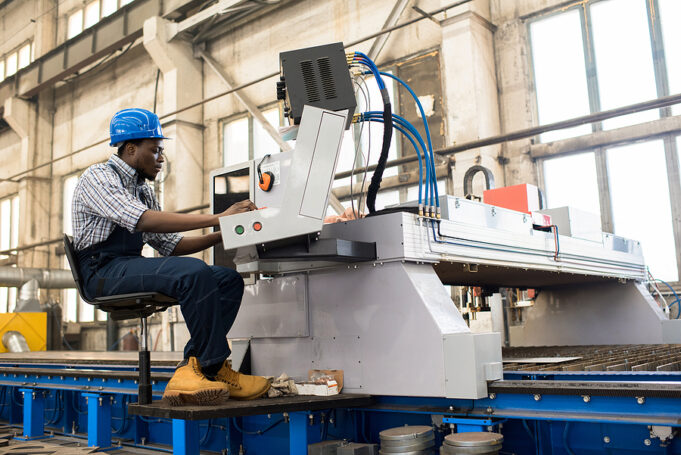The United States seems to have an affinity for jailing its citizens as it incarcerates them more than any other country on earth. Not surprisingly, mass incarceration as a social control system disproportionately affects Blacks, Latinos, the poor, and does not make us any safer. In the American criminal justice system there are times income, not necessarily guilt, forms outcomes.
According to the Equal Justice Initiative, the U.S. has 5 percent of the world’s population, but nearly 25 percent of its incarcerated population. U.S. spending on jails and prisons reached $87 billion in 2015, increasing 1,000 percent from the $7.4 billion spent in 1975. In 1972, there were only 200,000 people incarcerated in the United States. Today that number has grown to 2.2 million. From 1980 to 2017, the number of women in jails and prisons in the U.S. grew by 750 percent. Over 225,000 women are incarcerated today.
As criminal justice reform has taken center stage through the Black Lives Matter movement, the Washington, D.C.-based National Black Chamber of Commerce (NBCC) is also addressing the issue through its recently introduced Project Rebound Program.
The initiative represents one toolbox tool designed to help former offenders find employment and avoid the dreaded r-word, recidivism. “Project Rebound will educate the small business community about in-custody employment training programs and connect released offenders with employers willing to give them a second chance,” according to the organization’s recent press release.
The National Black Chamber of Commerce is a nonprofit organization with over 200 chapters in the U.S. and abroad comprised of Black-owned businesses dedicated to economic empowerment in Black communities and the success of Black businesses.
“Incarceration and subsequent recidivism, unfortunately, continue to impact our community,” explained Larry D. Ivory, Chairman of NBCC. “This has been a big focus for us for quite some time, and we hope to work toward the common goal of reducing the risk of reoffending.”
According to studies, those who are employed are less likely to reoffend. This correlation has led many to think that increasing access to jobs could be the key to reducing recidivism.
“Our vision for Project Rebound is to create community awareness of the need for rehabilitation,” said Harry C. Alford, president and CEO of NBCC. “We need to have compassion for those who stray away from law and order, and bring them back into the fold to make sure that our society is the best society it can be,” he said.
According to the mission statement of the initiative, “Project Rebound will inform the small business community about prison employment programming to increase their willingness to hire and place former offenders into meaningful jobs, thereby improving their circumstances and expanding their opportunity for success. We change their lives and make society a better place.”

The program will educate potential employers on current prison educational/training and programming and support for recidivism programs. Other program goals include: advocating for programs proven to reduce recidivism—regardless of whether they are managed by the government, nonprofit organizations, or for-profit companies; conducting people to people sessions with employers and returning offenders and eventually hosting a podcast on criminal justice reform, notes the program’s website.
Some counterarguments say these types of programs do not reduce recidivism, and there isn’t enough research. Corrections Today published an article by Marilyn C. Moses. “Releasees may face many employment barriers to their return to society, such as race discrimination, inadequate educational attainment, insufficient or outdated skills, a spotty or nonexistent work history, undesirable physical appearance (e.g., missing teeth, tattoos), drug addiction or other health impairments, few soft skills, economically disadvantaged communities with few available jobs to return to, and a criminal record,” wrote Ms. Moses.
“Job placement programs or employment intermediaries may prove beneficial in helping ex-offenders overcome employment barriers. However, the evidence of their role, to date, in reducing recidivism is scant and is not understood,” she added.
But programs that work extensively with ex-offenders don’t necessarily agree. One of the leaders in prison employment programming is the Chicago-based Safer Foundation. It is one of the nation’s largest nonprofit providers of services designed exclusively for people with criminal records.
“Whether it’s getting an ID, an updated resume, a high school equivalency diploma, transitional job, permanent employment, or even obtaining industry-recognized credentials—we are there every step of the way. Through our proven methods and individualized care, we help people thrive and build a future they never thought possible,” notes the group’s website.
Safer Foundation’s goal is to change the mindsets of inmates and ex-offenders’ so that they can be encouraged to work toward holding a regular job and a noncriminal lifestyle.
The Nation of Islam has had a powerful impact through its prison ministry, changing inmates, and ex-offenders’ mindset. The Nation of Islam’s Student National Prison Reform Minister Abdullah Muhammad told The Final Call that programs and life skills without God at the center “is going to be ineffective” because all that is mostly offered is “the thought patterns and mathematics of this world.”
“The world is under what Minister (Louis) Farrakhan said is a plague from heaven (coronavirus). How can small businesses exist when the divine plague shuts them down, and minimum wages wont do? We, Black people, must pool our resources and do for self. Separation is the best and only solution,” he said.
There is no one cookie-cutter approach to addressing recidivism. “There is no single solution to recidivism because people’s reentry needs are exceedingly complex and frequently intertwined. That means that focusing on one need at the expense of others can yield unintended consequences,” wrote Nancy La Vigne for The Hill.
“It is also counterproductive to provide every person exiting prison with the same array of reentry supports. Such a strategy is both ineffective and imprudent use of public resources. Instead, successful reentry programs need to be both holistic—addressing all the needs of an individual—and tailored—recognizing that people have different needs,” she concludes.
Razakhan Shaheed, who heads the Philadelphia-based Nation Time Judicial Research program, a legal research initiative for indigent persons that are incarcerated with no funds and few family resources, in an interview with The Final Call said he felt programs such as Project Rebound are badly needed, especially in this Covid-19 era.
“Employment, in my experience, goes a long way in keeping people from going back to jail,” he said. “You have many reentry programs, but I believe first on the list needs to be housing. The average individual simply doesn’t have housing resources. It is a major impediment and the first step before employment,” said Mr. Shaheed.
“What does a person do if they have nowhere to go and nothing to do? They go back to what they know.”













